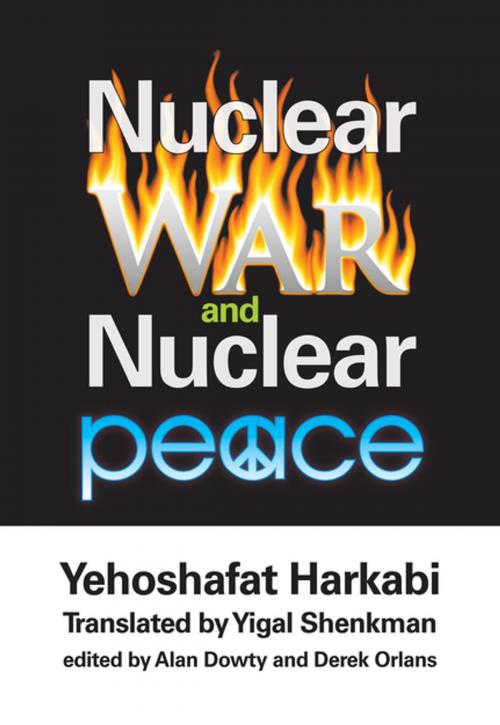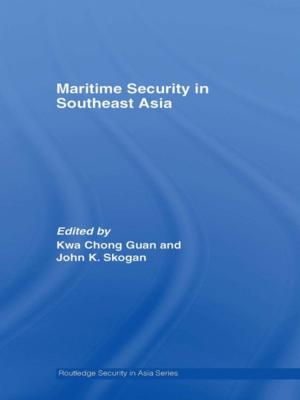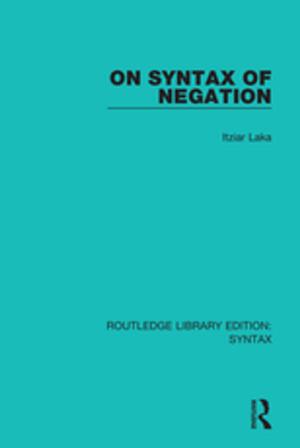Nuclear War and Nuclear Peace
Nonfiction, Social & Cultural Studies, Political Science, International, International Relations| Author: | Yehoshafat Harkabi | ISBN: | 9781351502689 |
| Publisher: | Taylor and Francis | Publication: | September 18, 2017 |
| Imprint: | Routledge | Language: | English |
| Author: | Yehoshafat Harkabi |
| ISBN: | 9781351502689 |
| Publisher: | Taylor and Francis |
| Publication: | September 18, 2017 |
| Imprint: | Routledge |
| Language: | English |
This book began as a personal effort to comprehend the effect of nuclear weapons on the current era and its international system. Nuclear weapons have not merely revolutionized the military sphere but havce also left their stamp on the world order. Knowledge of the basic principles of nuclear strategy has become a prerequisite to understanding world events. Consequently, no country can remain indifferent to nuclear strategy or can consider itself exempt from its implications. The very importance of the subject precludes the assumption of a narrow technical or military point of view. Political, historical, moral, and even religious implications must be considered.Nuclear War and Nuclear Peace serves as an introduction to the study of modern strategy within the framework of international relations, as well as a basic account for laymen to the intricacies of modern strategy and its ramifications. It deals with a wide range of problems: deterrence and its implications; surprise; and preemptive and preventative attack. The problems of quantities of nuclear weapons, limitations of war (conventional, tactical and strategic), and proliferation of nuclear weapons are also discussed. In the end Harkabi introduces alternate global approaches and the problem of coalitions in the nuclear era. By focusing on disarmament and arms control; peace in the shadow of terror; and stability of the international system and peace research he brings relevance to his study in terms of the current world climate.Many books and articles have been published on nuclear strategy. Most have been designed to formulate strategic policies to suit the needs of particular countries and influence their policy. Most books on nuclear strategy have appeared in the United States, with strategic prescriptions for the United States. This book will be of tremendous interest to anyone wishing to understand the major problems of our contemporary world from a global perspective.
This book began as a personal effort to comprehend the effect of nuclear weapons on the current era and its international system. Nuclear weapons have not merely revolutionized the military sphere but havce also left their stamp on the world order. Knowledge of the basic principles of nuclear strategy has become a prerequisite to understanding world events. Consequently, no country can remain indifferent to nuclear strategy or can consider itself exempt from its implications. The very importance of the subject precludes the assumption of a narrow technical or military point of view. Political, historical, moral, and even religious implications must be considered.Nuclear War and Nuclear Peace serves as an introduction to the study of modern strategy within the framework of international relations, as well as a basic account for laymen to the intricacies of modern strategy and its ramifications. It deals with a wide range of problems: deterrence and its implications; surprise; and preemptive and preventative attack. The problems of quantities of nuclear weapons, limitations of war (conventional, tactical and strategic), and proliferation of nuclear weapons are also discussed. In the end Harkabi introduces alternate global approaches and the problem of coalitions in the nuclear era. By focusing on disarmament and arms control; peace in the shadow of terror; and stability of the international system and peace research he brings relevance to his study in terms of the current world climate.Many books and articles have been published on nuclear strategy. Most have been designed to formulate strategic policies to suit the needs of particular countries and influence their policy. Most books on nuclear strategy have appeared in the United States, with strategic prescriptions for the United States. This book will be of tremendous interest to anyone wishing to understand the major problems of our contemporary world from a global perspective.















